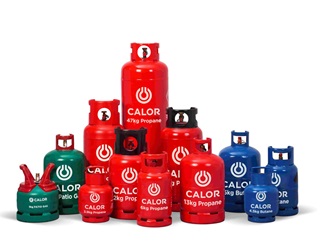When it comes to carbon emissions, both propane and butane are clean burning fuels that are better for the environment than alternatives such as oil. If you are using propane in BioLPG form (where it is still chemically identical to LPG and compatible with all LPG products) you can reduce your carbon emissions by up to 38% when compared to oil**.
BioLPG, an eco-propane, is a renewable, sustainable energy source made from a blend of waste, residues, and sustainably sourced materials. It’s chemically identical to LPG and is compatible with all LPG products - BioLPG has no compromise on performance, so it's as energy efficient as LPG, whilst supporting us all to achieve a more sustainable future.
BioLPG can be supplied to your home as part of Calor’s Green Energy Plan, whereby 40% of your home energy is renewable (40% BioLPG / 60% LPG mix). By opting for this plan, you’re buying into a sustainable mix and a more sustainable future. The entire LPG supply industry has committed to supplying 100% renewable energy by 2040, and we’re proud to be leading the way towards meeting this ambitious target.


 }
}
 }
}
 }
}
 }
}
 }
}
 }
}
 }
}
 }
}